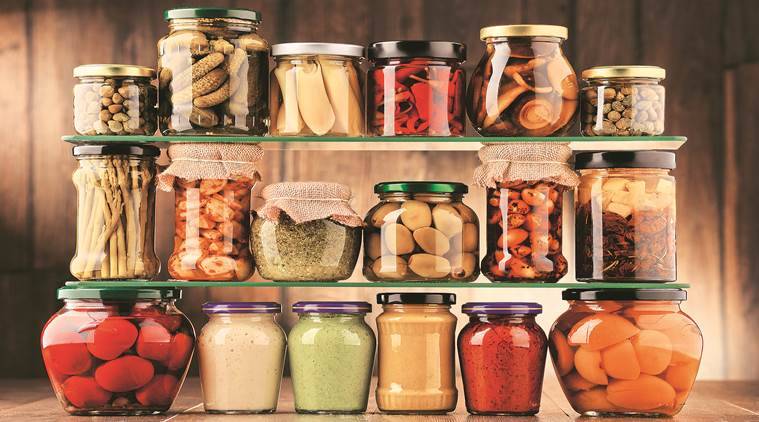Aruna Raghuram
Jars of pickle have few takers these days. Palates have gone exotic. Meals consist of hummus and toasted pita bread. Or, Mexican rice and guacamole. Or, Thai green curry and noodles. The humble pickle is fading from family memory. Let’s jog the collective memory with some pickle tidbits.
The art and science of pickling goes back around 5000 years. According to the New York Food Museum website, cucumbers from India were pickled in Mesopotamia as early as 2400 BC. The name ‘pickle’ is derived from the Dutch word “pekel”, meaning brine, the medium used to preserve food.
Pickling was innately a survival skill. Almost anything could be pickled – vegetables, meat, eggs and sea food, stretching its shelf life. The stock of preserved food would come in handy in times of scarcity. Soon spicy/tangy crunchy morsels of pickle seduced the taste buds and became a delicacy.
Beauty secret
Consuming pickles was among Cleopatra’s beauty secrets! History has it that Christopher Columbus stocked cucumber pickles, rich in vitamin C, on his ships so that his sailors did not fall prey to scurvy.
In her book Pickles, A Global History, Jan Davison writes that pickles were as much a food of the elite royalty and nobility as of the masses. She mentions that the Lithuanians even named a deity in charge of pickling, Roguszys!
Certain 19th century western inventions were significant for pickling. They were ‘mason jars’ made of heavy glass, ideal for pickles that were processed at high temperatures, and metal caps used in commercial canning.
Courting ritual
In Fiji, pickles have been part of the courting ritual. Boys have to show the girl’s family their pickle reserves, proving they can provide for their wives in times of hardship.
Closer home in India, it is customary among the Parsis in Ahmedabad to gift pickles to relatives before a wedding is formalised. Instead of the common practice of distributing sweets, they believe in sharing this multi-flavored preparation that symbolises life itself in all its nuances. What can match the pickle in the diversity of tastes it encompasses – spicy, salty, tangy, with a hint of sweetness and a dash of bitterness?
Patience pays
Pickling is not easy. American author and ethicist, Rushworth Kidder, has said: “Good ideas, like good pickles, are crisp, enduring and devilishly hard to make”. Chef Kunal Kapur once observed in his TV show ‘Pickle Nation’, that pickling requires the “right ingredients, the right attitude, and patience”.
Popular north Indian pickle varieties include pachranga achar, made with five vegetables including the exotic lotus stem that has a decided crunch and subtle flavour. Then there is the gobhi, gaajar, shalgam ka achar made of cauliflower, carrot and turnip. From the south, there is the spicy avakai, gongura made of roselle leaves and vadumanga using tender baby mangoes. Sweet mango pickle called chunda is a speciality of Gujarat. Not to forget garlic and lemon pickles savoured across the country.
Pickles have health benefits. Korean pickled cabbage kimchi is rich in iron, vitamins B6 and K, and probiotics. The Indian Ayurvedic texts too extol the virtues of pickles saying they boost the metabolism and aid in digestion.
Shop-bought pickles have become the norm these days. There is a sense of nostalgia about seeing a glass bottle of homemade pickle. It makes one remember grandma sunning her pickle jars on the terrace and sampling her creations with a gleam of pleasure and pride in her eyes. Pickles are like knowhow of the past packed in jars and bottles. Knowhow that a family needs to preserve…
Pickle anyone?







